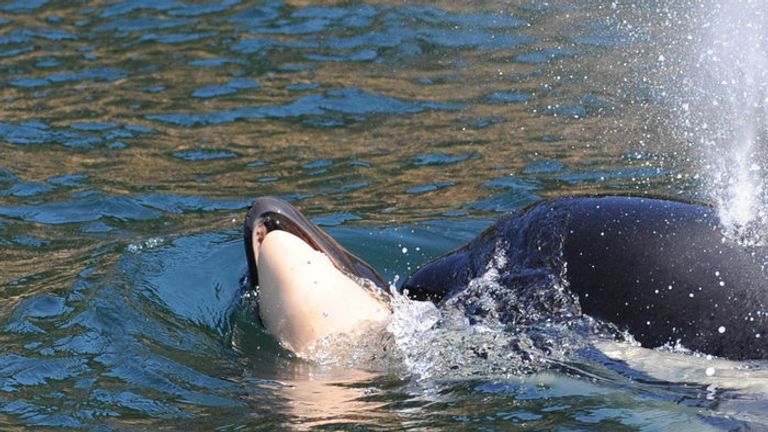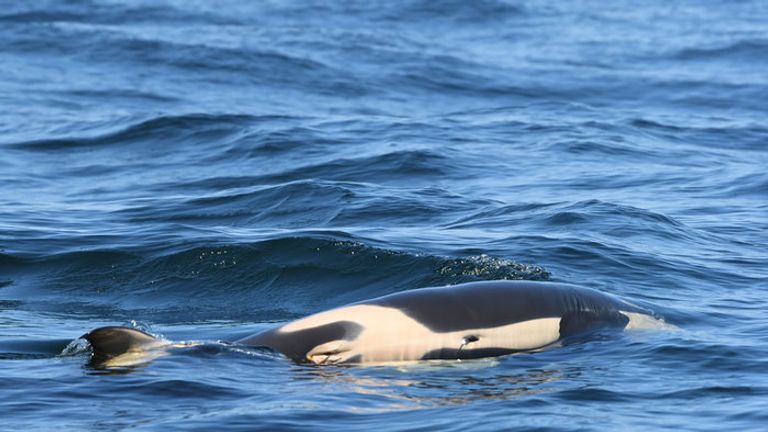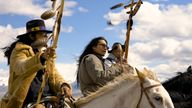Grieving killer whale mother is falling behind family as she carries dead calf
The early death of a baby whale has highlighted the plight of orcas, which are endangered and struggling to breed.
Thursday 2 August 2018 05:24, UK
Researchers are concerned for the welfare of a female orca whale who has carried her dead calf for more than week.
The grieving mother, named J-35, is falling behind her family as she clings to the infant, who died shortly after it was born, pushing it through the water on her forehead.
Experts say she is going through a "deep grieving process", in a case that has shone a light on orca whales' struggle for survival, and the close bonds that shape their lives.
The animals are known for mourning their dead. Experts think family members are helping the mother to carry the calf.
And witnesses described the group gathering in a cove for what looked like a "ritual or ceremony" after the baby died.
But the tenacity of the parent, who is swimming off the coast of British Columbia and is affectionately named Tahlequah, is unusual.
Jenny Atkinson, director of the Whale Museum which is monitoring the pod, told Sky News that researchers need to know if J-35 has had enough food and rest, as she is using up a lot of energy carrying the calf.
"She's travelled hundreds of miles," she said. "There's a lot of pressures on this entire community and if she has the responsibilities of carrying her calf on top of that then this is going to really difficult for her."
Ms Atkinson's team, who are monitoring the pod to support the whales and raise awareness, have observed the whale taking deep breaths before diving deep below the water.
They believe she may drop the infant before retrieving her and continuing to carry the body, which is preserved by ice-cold water, sometimes by a fin.
Observers don't yet know how the baby died, but it is now rare for healthy infants in the southern resident killer whale family to be born and survive.
The overlapping threats to the animals, who live near the built-up coast around Washington State and Canada's British Columbia, include toxic pollution, disturbance from boats and a lack of food, particularly nutritious, pink salmon.
The difficulties mean two thirds of orca pregnancies failed between 2007 and 2014 and the population is now at its lowest in three decades, with no viable offspring produced in the past three years.
There are currently around 90,000 killer whales in the world but just 75 southern resident killer whales, a segment of the species who have their own unique language, territory and behaviours.
Experts are particularly anxious because as a 20-year-old female J35 is at breeding age and is crucial for the future survival of the family.
But they cannot separate the mother from her dead calf, for fear they may worsen her condition by disturbing the grieving process.
"It is our honour to witness it and respect it," Ms Atkinson said.




